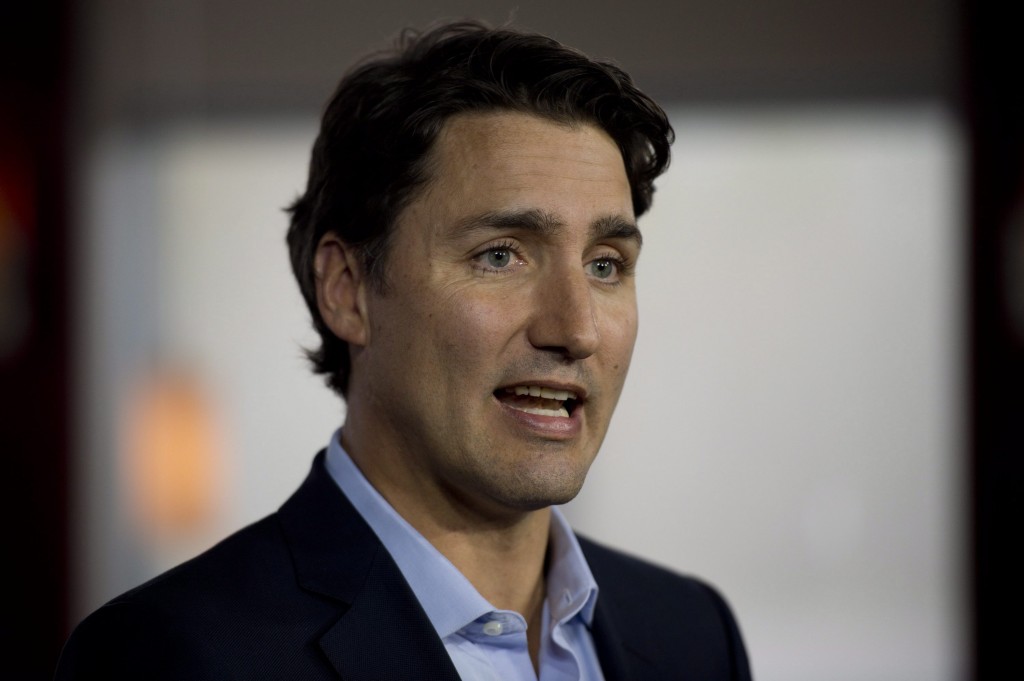Why the Liberals’ proposed child tax benefit is so important
The child tax program would simplify Canada’s unneccessarily complex tax system while at the same time making it fairer
Share

Over 25 years ago, Canada vowed to end child poverty. This week, a policy proposal was released that is intended to get us there.
The Liberal Party of Canada announced two new policies on Monday, including a change in tax brackets—which they’re calling a “Tax Break for the Middle Class”—and a reform of benefit programs for families into a new “Canada Child Benefit.” Both parts of what the Liberals are calling “Fairness for the Middle Class” are interesting enough to deserve stand-alone analyses; for this piece I will focus solely on the child benefit proposal.
A number of economists have already weighed in on both pieces of the Fairness plan, including Kevin Milligan, Stephen Gordon, Tammy Schirle, David McDonald, Lindsay Tedds, Kevin Milligan again and Jack Mintz. Similar to Kevin, I was brought in as an outside advisor on the Fairness plan, though my work was limited to costing the program and beta testing it for errors and omissions. I share Kevin’s credo of “when someone from Ottawa calls with a request for policy advice, I try to take the call.”
On one level, the Canada Child Benefit (CCB) as proposed is pretty basic: Take four existing tax programs for families, including the incredibly complicated income-splitting tax credit, roll them into a single unified program and add $2 billion of projected budget surplus money into the pot. The true value of the CCB is not so much in the additional money as it is in its design, which targets the benefits to those who need it most while simplifying a tax code that has grown out of control.
The big benefit to the new CCB is that high-income families are excluded from the program, which allows more of the benefits to flow to low- and medium-income families. Tammy Schirle has provided an excellent primer on the economic damage caused by universal cash programs, which concludes with:
I would like those families who think it seems “fair” for all kids to get a cheque to seriously question what they and other Canadians have to give up to get that demogrant. Because you are giving something up, and there are alternatives.
The CCB replaces the existing Universal Child Care Benefit (UCCB), which is not means-tested. Bay Street executives, NHL players and, yes, even business professors are given UCCB cheques each month to help cover the cost of groceries and childcare. There is absolutely no need for this, as those groups have more than enough resources to pay for the cost of raising their children, so the UCCB is a failure on both efficiency and equity grounds.
Under the CCB, families will receive a maximum of $6,400 per year for each child under age six and $5,400 per year for children aged six to 17. The means-tested aspect of the CCB reduces these benefits based on family income, but as Kevin Milligan has shown, it does so at marginal rates which are much lower than the existing combined clawback rates of the National Child Benefit Supplement (NCBS), and the Canada Child Tax Benefit (CCTB), two of the programs being replaced by the CCB. This helps reduce the “welfare wall” problem in the current patchwork of family benefit programs.
By consolidating programs and focusing benefits on those most in need, the Liberals have created a transformative anti-poverty program for a net cost of only $2 billion. The Canada Child Benefit is, in essence, a guaranteed annual income for children, to help ensure that no kids in Canada go to bed hungry, no one has to go to school in tattered clothes and no child is denied a chance to participate in sports due to a lack of funds.
The benefits the CCB provides in terms of simplification should not be overlooked. According to the Canadian Taxpayers Federation, the Income Tax Act has grown by 210,000 words since Stephen Harper took office, creating a lot of business for tax accountants and attorneys and a lot of headaches for everyone else—including the Canada Revenue Agency, which has trouble providing reliable tax information to Canadians. And that’s just one tax act; the iPod tax fiasco was illustrative of import taxes so complicated that the government itself does not understand them. By consolidating four programs into one, the CCB meaningfully simplifies the family benefit component of the tax system. If I have one criticism of the CCB proposal, it is that it does not go far enough. I would love to see additional family-based tax credits eliminated by being rolled into the CCB. Despite that, this is a fantastic first step towards reforming Canada’s unnecessarily byzantine tax system.
The CCB creates a guaranteed annual income for children, reduces the welfare wall on current benefit plans and simplifies the tax code. What’s not to love?